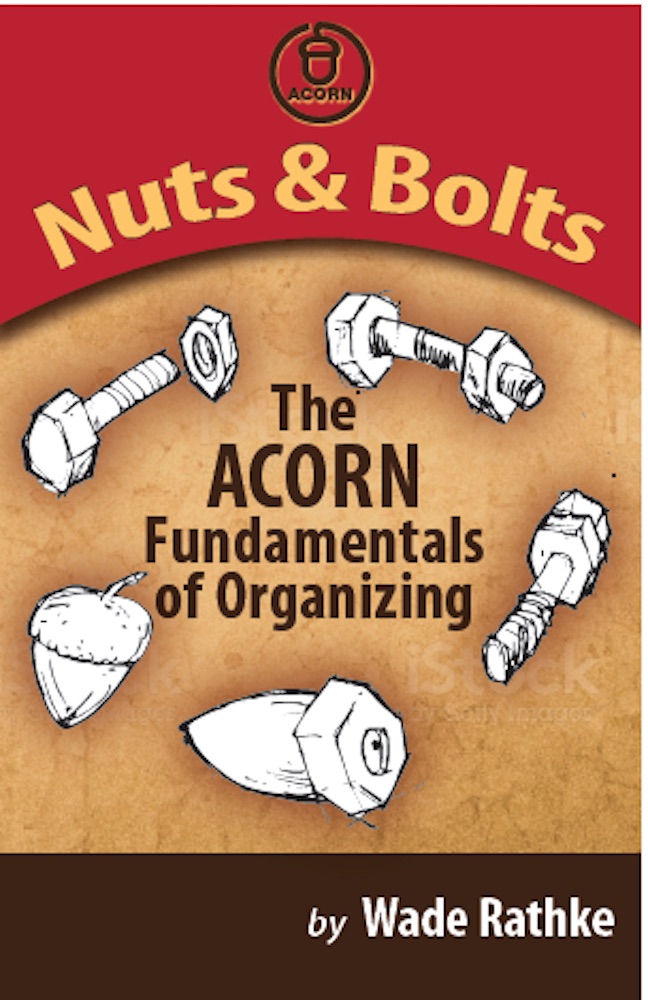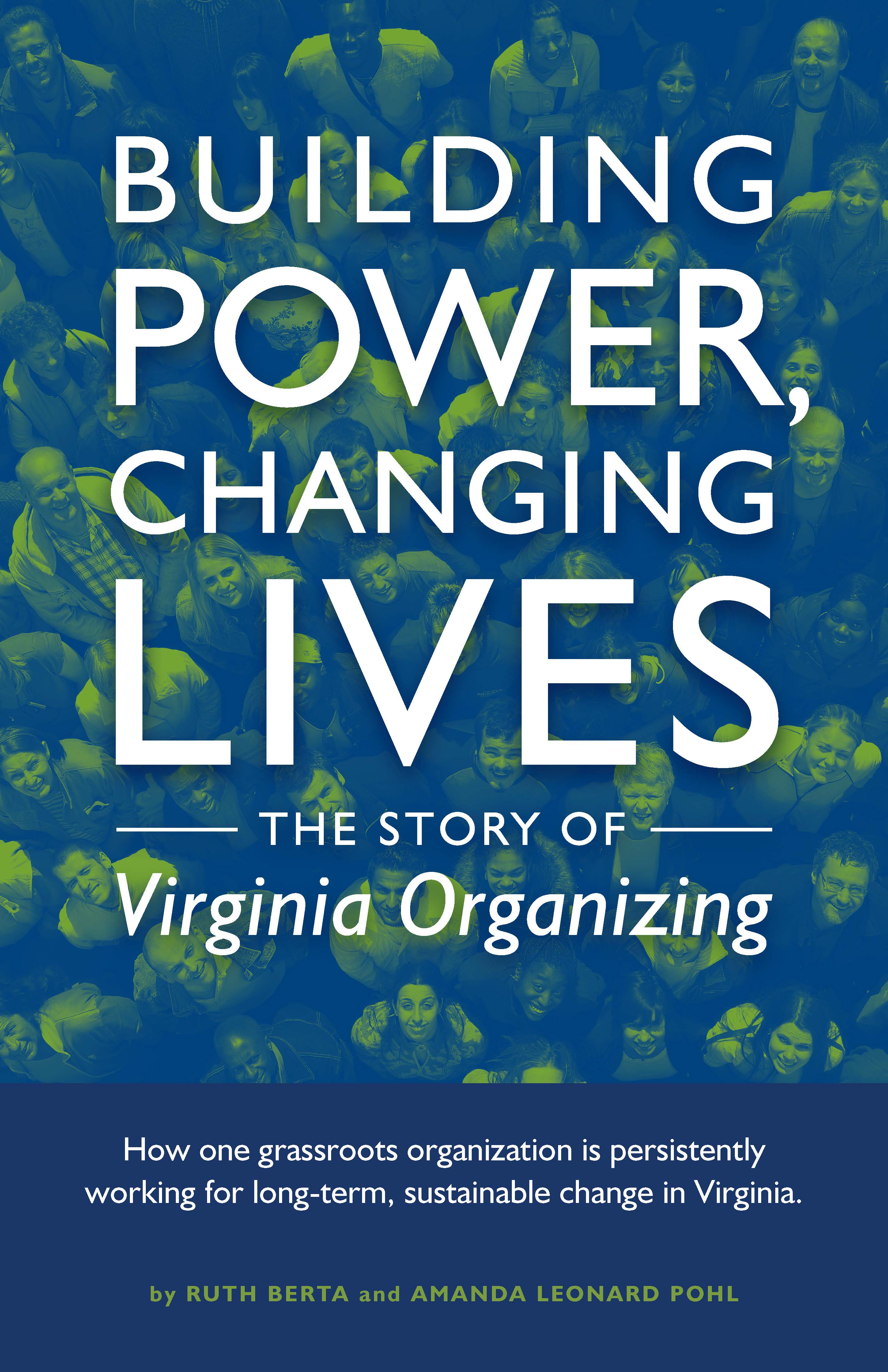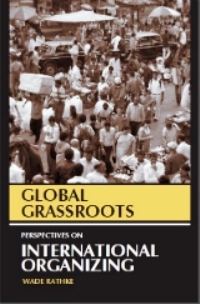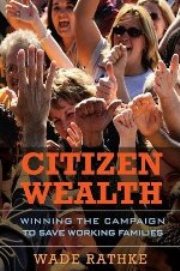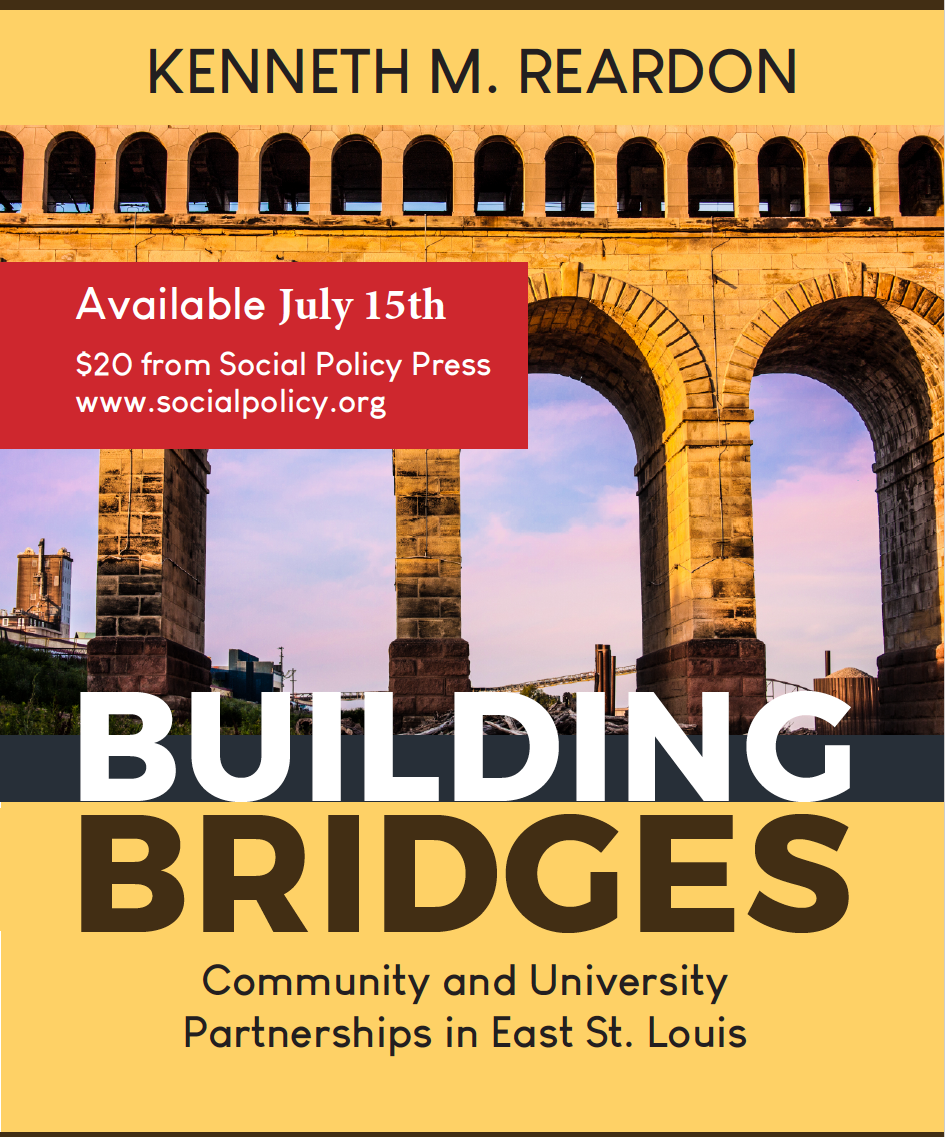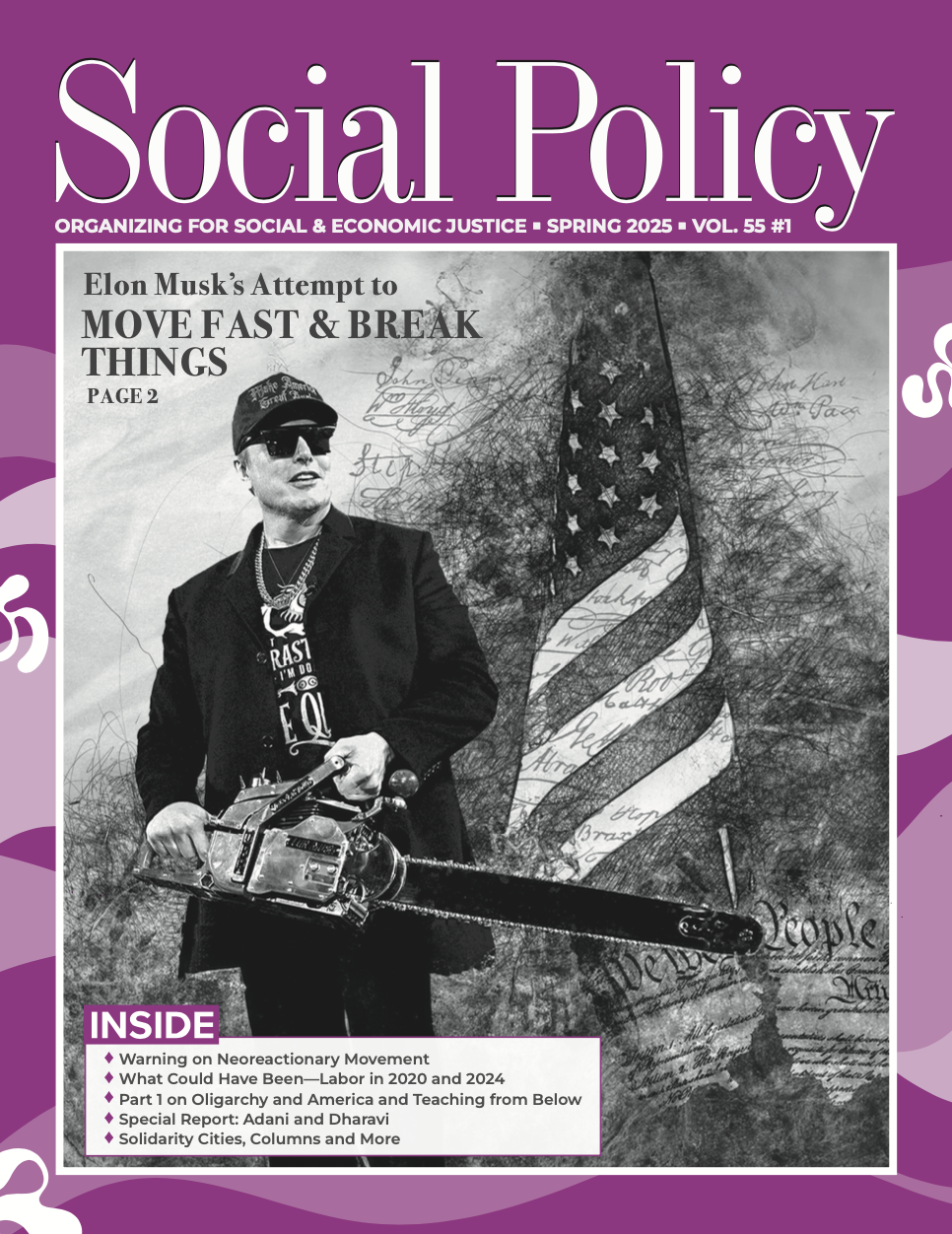Remaking American Democracy IV: Kleptocratic Oligarchy and America's Economic Destiny – Part I
Written by Moshe Ben Asher & Khulda Bat Sarah
Editor’s Note: The urgency of our times produced this piece, but we are running in two parts, dues to space restraints. The second Part, looking more deeply at the impact of sanctions and the rise of other competitors will run in the next print issue, but the full article will run now on our website for readers who need it now.
Threats to American life have been unfolding at unprecedented speed since the beginning of this year. From one moment to the next, anything can become vulnerable. What we see today may change unimaginably overnight. Yet the most destructive outcomes may still be foreseeable. This essay seeks to identify some of the probable long-term economic consequences of what seems now to be a limitless national tragedy.
The supporting data are widely available from many outlets. We have relied on multiple sources, especially those with reputations for integrity, critical-mission responsibility, and accuracy, albeit they may be ideologically biased toward democracy, commonweal, and social morality. We have avoided citing references because they are widely available on the Internet, and we have included them in our previous Remaking American Democracy articles [see past issues at www.socialpolicy.org].
In “Remaking American Democracy III: ‘Keep Your Eye on the Ball’—The Amoral, Oligarchic Arch-Enemy of Democracy Among Us,” we asked: What has the growth of the American oligarchy, from collaborating landholding elites to industrially based oligarchs, meant for the American political system, domestically and on the world stage? Moreover, what has it meant for the moral-spirituality and the psychological and physical well-being of the American demos? We now have a definitive answer to that question.[i]
Now, in this newly emerging American post-democracy era, with the U.S. Government a kleptocratic oligarchy, testing its plans and powers, we’re asking: What is the nation’s economic destiny? Is it likely to be as economically devastating as the current political and social maelstrom? And is that destiny irrevocable? Or can it be redirected; and, if so, in what directions and how?
We have avoided focusing on the rhetoric and motives of the Trump-Billionaire Brotherhood Oligarchy (TBBO) and its behind-the-scenes technical masterminds, concentrating instead on the effects of their actions.
Kleptocratic “Economic Development”
Our economic future as a nation cannot be understood without knowledge of the nation’s traditional economic development model. It has relied on territorial expansion through the use of military force, which became embedded in our cultural and institutional genes. This history, from the late eighteenth century Northwest Indian War to the late nineteenth century takeover of Cuba as a U.S. “protectorate,” has been well documented. The model still dominates U.S. foreign policy and international trade strategies. It has been moderated, however, in response to revolutionary movements abroad, the constraints of international law, and U.S. treaties. Negative reactions by foreign nations have been buffered by U.S. humanitarian aid to those in dire need.
Domestic U.S. economic development, having reached full BBO (Billionaire Brotherhood Oligarchy) profitability during recent decades, has deep roots in U.S. history.[ii] Through corrupt political influence, they have thrown off the consequences of their economic exploitation onto all the non-elite “lower classes.” Their more egregious tactics, implemented domestically by the BBO political action-arm, have included:
-
Eliminating regulations that limit the exploitation of resources
-
Obstructing replacement of fossil fuels with renewable energy sources
-
Starving public transportation
-
Supporting punitive tariffs on foreign cars
-
Reducing taxes on wealth
-
Promoting consolidations of huge corporations
-
Endorsing the devaluation-printing of “paper-dollars”
-
Fostering a “debt-spiral” by exponential borrowing to pay ballooning debt-interest
We can more easily see the economic implications of these BBO tactics by considering one in particular—the purposive but sub-rosa devaluation of the U.S. Dollar.
The value of U.S. currency in the past was based on our productivity and cognizable assets, tangible and intangible. The latter include gold and the stability of the U.S. Government, especially its legal and fiscal practices. The U.S. paid for international trade with dollars. When we began spending more than we produced, U.S. Dollars were accepted to finance our trading debt because they had become the reserve currency of the world. The U.S. consumer-powered cornucopia has been sustained by handing out “pieces of paper” that had no intrinsic worth. But the total outstanding U.S. debt in “paper dollars” is now projected to reach an astronomical $52 trillion within one decade, markedly lessening its value as a reserve currency.
Unsurprisingly, in 2006, Brazil, Russia, India, China, and South Africa formed the BRICS cooperative association of nations. They turned to the Yuan of the Peoples Republic of China (PRC) as their reserve currency. By early 2025, the association’s members included Argentina, Egypt, Ethiopia, Iran, Saudi Arabia, Indonesia, and the United Arab Emirates. Nine “partner nations,” on track for future membership, include: Belarus, Bolivia, Cuba, Kazakhstan, Malaysia, Nigeria, Thailand, Uganda, and Uzbekistan. Over 20 countries have applied to join BRICS in 2025. Nations “collaborating” with BRICS include Vietnam, Bangladesh, Algeria, Venezuela, and Kenya. Of those, current applicants include Algeria and Vietnam, plus Turkey. BRICS+ nations now represent 54.6 percent of the global population and 42.2 percent of world GDP.
The BRICS association’s objectives include ending U.S. Dollar dominance, reforming the global geopolitical structure, and enhancing cooperation between the developing economies in Africa, Asia, Latin America, and Oceania. They eschew Western-led approaches to trade and development. It’s reasonable to expect that in coming years their membership will increase at the expense of the U.S. economy and geopolitical leadership in world affairs.
We are also beginning to see America’s traditional allies quietly making similar self-protective moves. Japan is moving geopolitically, far less than the BRICS nations, but with similar caution regarding the future of the dollar. The Japanese have been unloading much of their dollar reserves.
Domestically, printing dollars to finance more debt produces inflation, which means rising prices. Inflation is also profit-driven, guided by the managers and owners of the consolidated corporations, which hurts all employees economically. In response, the Federal Reserve, unduly influenced by the BBO, raises interest rates, which compounds the cost of everything for the demos. A commonweal-driven system would instead impose price controls with costly consequences for violators, enforced by the Justice Department. President Nixon did so with a wage-price freeze which stopped the inflation at the time. Interest rates were not raised.
The BBO-driven devaluation of our currency’s value has chipped away at the economic security of Americans for more than a decade. Employees know that year by year, their dollars buy less housing, less food, less transportation, less of almost every necessity. Piling on more debt and dollar devaluation means its purchasing power will continue to diminish and be increasingly abandoned across international trade networks. That will trigger more U.S. inflation and more chronic American poverty.
Through the self-enriching BBO fiscal policy of printing “paper dollars,” the oligarchs have become wealthier and more politically powerful. Taxes on corporations and personal wealth have been lowered, piling them on the middle- and lower-income populations. Both Republicans and Democrats voted for these changes. Real wages stopped rising back in the 1970s, and women (including white women for the first time) began to leave their homes in much larger numbers to sustain their families access to necessities. The other option families took was to borrow money, which has turned the U.S. into a debt-ridden society. When women began moving into the workforce in large numbers and families began assuming massive credit card debt, devastation of family life and home-based moral and civics teaching followed. In 2008, the credit bubble burst—Wall Street mostly thrived, middle- and lower-income families lost their homes, their jobs, their dignity and hope.
The general public and too many U.S. cultural and institutional leaders do not understand that the oligarchic betrayal of the nation’s economic well-being may reduce the U.S. to a second- or third-rate nation. This could happen in one or two generations, because the economic development MO of the BBO is now facing broad-based competition. The threats are too varied and extensive to list, but the following examples suggest the potency of the competing development model when compared to the U.S. approach.
Economic Development Competition
The U.S. domestic model of economic development has relied on narrowly held political power and exploitation of labor. From the plantation economy of the South, which was dependent on slaves, to the rise of industrial capitalism, wealth accumulation has relied on the suppression of wages and benefits. The Gilded Age of the late nineteenth century was marked by extreme economic inequality, union busting, and violent suppression of labor. After the concentration of wealth and greed-driven speculation helped to bring on the Great Depression, the post-World War II period led to improved conditions for some workers. But the eroding purchasing power of earned income since the 1970s has corresponded to further concentration of BBO economic and political power.
Our international economic development model has utilized a combination of proffered bribes, lopsided economic demands, and implied military threats to exploit the natural resources and cheap labor of less-developed nations. The Government has fomented coups and waged covert and overt war against uncooperative nations.[iii]
The U.S. thrived for much of the past on the self-satisfying and ultimately self-sabotaging privileged cultural belief of a growing empire, that its manifest destiny justified domestic oppression and international exploitation of other nations by an elite of super-wealthy industrialists.
China, on the other hand, has been conducting a worldwide demonstration of another model of development. The country has raised from dire poverty nearly a billion and a half of its citizens in the past 50 years.[iv] Critics note that China’s success has been built on the back of American technology, but it was obtained through a policy of inviting U.S. corporations to enjoy extraordinary profits (possible with very cheap labor and access to the huge Chinese market) by agreeing to share their technology with the Chinese.
Our competitors now stand together in the BRICS association, attracted by the Chinese development model. Since 2000, China has become Africa’s largest trading partner, first by not being a former colonial power and second by approaching each African nation’s leaders respectfully, not assuming the right to control their development agenda (as the U.S., even Biden, and Europeans have continued to do). The Chinese model includes the new BRICS development bank, which provides alternative financing for African nations, geared to their own development priorities. China has promoted sustainable, diversified economic development in Africa. Its relationships were jump-started by the Belt and Road Initiative (BRI) that has made major investments in African telecommunications, energy, infrastructure, healthcare, education, and technology, and pledged to create one million green-energy and tech-innovation jobs over the next three years. The BRI has already produced thousands of kilometers of new railway, essential bridges, and much more.
Bloomberg’s “Myth of the Chinese ‘Debt Trap’ in Africa” (March 17, 2022) describes the Chinese investment in Africa as mostly successful but acknowledges failures, the latter often from nothing more sinister than the high-interest commercial loans some African nations needed and their own over-confident estimates of success, leaving them with onerous debt. China’s investment in African economic development is widely acknowledged in Africa as remarkably successful, having achieved balanced development, which promises long-term benefits that will bring their historically impoverished populations into the modern era.
U.S. sanctions have had little effect on the BRICS association. Current predictions suggest the downstream effects of BRICS will include ending the worldwide dominance of Western financial institutions, such as the World Bank and International Monetary Fund. The widespread thinking in BRICS affirms that European and American dominance has hindered diversified development, forcing the less-developed nations to utilize only their most abundant natural resources, those that could be cheaply exploited by their dominant trading partners.
U.S. miscalculations are also producing a strategic loss of influence on our traditional trading partners. The global disruption to international trade, which is highly integrated, the result of the threatened Trump tariffs and other misguided ultimatums, whether bluffs or implemented, alienate other nations. While they may publicly respond to the threats accommodatingly, they nonetheless begin to look quietly for new, more dependable trading alliances, especially those based on the “mutual benefit” BRICS model.
For example, China has been negotiating currency-swap agreements, trading Chinese yuan for the currencies of economically troubled nations. This allows direct trade between them, bypassing the influence of the U.S. dollar. Forty such currency-swap agreements have already been signed. These agreements are particularly attractive to the struggling nations because they eliminate subservience to U.S. rule-making during times of economic crisis. In those instances, they have available to them the strong yuan they previously swapped for their own weak currencies.
More recently, however, China developed the digital yuan (e-CNY), initially for domestic retail transactions but now employed on a pilot basis for cross-border trade using Central Bank Digital Currency (facilitated by mBridge[v]). These transactions are based on active central-bank-collaboration of the participating nations (i.e., China, Hong Kong, Thailand, and the UAE). Insofar as this system becomes more widely adopted, it will reduce reliance on the U.S. dollar in international trading.
The effect of the Trump and earlier U.S. approaches to economic development has been a deepening of Mexico’s ties to China through negotiating major Chinese investments there in auto manufacturing and EV production. The Chinese targeting of their Mexican investments in auto manufacturing and major infrastructure projects has reduced Mexican reliance on the U.S. by diversifying their trading options. What is China getting in return for its investment in Mexico? Mexico has vast lithium reserves, and the two countries have signed a 20-year agreement giving China access to that lithium.
The Trump tariffs imposed on Canada, whether or not the intimidation tactic achieves a temporary retreat by Canada, have reinforced Canada’s search for new trading relations with Europe and South Korea. Moreover, Canada has been allowing Russian oil to be transshipped across Canadian territory, undermining U.S. sanctions against Russia.
The actions by Mexico and Canada threaten to undermine the United States Mexico Canada Agreement (USMCA), largely to the benefit of China and BRICS. Many nations around the world are now reconsidering their trade relations with the U.S. and E.U.
The E.U. itself has begun negotiating a trade deal with South American nations. Like Chinese and Russian trade initiatives, the E.U. deal now (early 2025) with Mexico reduces a wide range of tariffs for Mexican exports and gives the E.U. nations entry to investment in Mexico and access to Mexican government contracts and service markets. The E.U. gets access to critical raw materials, reducing their dependence on U.S. controlled sources. The E.U. is also negotiating a free-trade agreement with Uruguay and Paraguay that will reduce tariffs on the majority of goods traded between the E.U. and the Mercosur nations (Argentina, Brazil, Paraguay, Uruguay, and Bolivia).[vi]
The message in all these developments, clearly received by the BRICS nations, confirms that U.S. dollar dominance is waning. The overall effect works to encourage a new international trade network less dependent on the U.S. and with reduced financial risks. If Japan’s lessened reliance on the U.S. dollar as its reserve currency is any indication, the Chinese creation of a new trade order will in time have significant geopolitical influence that reaches far beyond the opening of mutually beneficial markets.
With the U.S. international trade dominance and geopolitical influence faltering, what are we to make of the Trump promise to MAGA (both the constituency and the claim to make America great again) by rebuilding the U.S. industrial base, supposedly protecting us with tariffs, thus making the U.S. free and independent of outside forces? What are the prospects of such an outcome, especially in an era when trade and manufacturing rely on complicated global supply chains, which are difficult to relocate and replace?
Trump has been threatening to demand that all cars sold in the U.S. must be built in the U.S., which will mainly affect our traditional allies and trading partners, Japan and Germany. The threat, whether a bluff or in earnest, matters far less than the U.S. political volatility and economic unreliability which it highlights. Since we already have a 100 percent tariff on Chinese cars, which has blocked their sale in the U.S., presumably the Trump demand vis-à-vis China, our main worldwide competitor, is performative.
If Trump can convince his billionaire-brother investors to take on the re-industrialization of the nation by dangling sugarplum goodies in the form of little or no government oversight, regulation, or taxation (say, for example, of AI), whom do we imagine the ultimate beneficiaries will be? Will the resulting use of AI lead to more social development or more economic inequality and political power monopolization by the billionaire oligarchy?
The U.S. currently relies on China for electronics, textiles, furniture, solar panels, and automotive technology. The U.S. can’t compete with China in these arenas because our labor costs are much higher, we don't have the high-tech infrastructure, we don't possess the range in quantity of rare-earth elements, we don’t have in place anywhere near the manufacturing-qualified labor for high-tech, and we don’t have adequate access to other natural resources and minerals.
Creating a massive new high-tech industrial manufacturing base in the U.S. will take at least a decade and require continuing large investment and policy shifts (far beyond the Biden initiatives) by both government and private companies. Do we imagine Trump will lead the way in ramping up expenditures for high-tech education resources, that he will liberalize immigration laws to prioritize high-tech, high-value foreign entrepreneurs, designers, and engineers, that somehow private industries will forgo profits to subsidize the notably higher labor costs that make the U.S. far less competitive, that we will be able (under the Trump doctrine of America First) to find the necessary trading partners to replace the rare earth elements, graphite, many other minerals and natural resources we get from China (and at anywhere near the same low prices)?
Trump’s “commitment” to re-industrialize America, making us independent of the rest of the world, denotes another instance of his performative pie-in-the-sky “promises” made to momentarily bamboozle the public, with the expectation it will be soon be forgotten, especially by the most loyal of the MAGA base.
Getting beyond the TBBO chaff calculated to obstruct detection of their raison d’être, if we want to know our own strategic position vis-à-vis our competitors or opponents, we must look at the world in which we’re operating from behind their eyeballs.
While we regard the Chinese government as oppressive because it is a one-party, totalitarian, quasi-communist state, they regard us as a one-party oppressive capitalist state, but with two wings. Their view is that the number of beneficiaries, percentage-wise and in absolute numbers, from their development is far greater than our development, which has benefited a small elite and purposely abandoned millions to chronic insecurity and poverty. Which is not to say we would prefer or accept China’s drastic limitations on political freedom and civil rights.[vii] But it does tell us volumes about their system as our main competition for this century.
Furthermore, autocratic regimes are not clones of one another. In North Korea, the demos are starving; in Russia they are dying by the tens of thousands from a dictator’s dreams of empire; and in Syria they have lost nearly everything in life that really matters, including life itself for countless numbers. But China, also ruled by an elite communist political party, does not fit that model of mass exploitation.
China, economically, operates as a socialist state that broadly serves the economic well-being of its demos. China, like the U.S., is politically ruled by a relatively small, elite body of leaders—regardless of the name we give to it. It has a thriving capitalist economy alongside selected public ownership of major industries and services. But in two respects, the differences in governance from the U.S. are stark: While the top Chinese leaders live luxurious lifestyles (like virtually all major national leaders), the state serves the overall social well-being. The Chinese government, while encouraging private enterprise and profit-making, tightly regulates it toward serving the larger purpose of uplifting the whole society.
The odiousness of Chinese political rule to us doesn’t lessen their successful development model, which has outpaced the earlier U.S. and European development by centuries. The PRC has achieved in 50 years of development what it took the United States and Europe hundreds of years to accomplish. The average wage in China has gone up 400 to 500 percent in the last four decades, while real wages in the U.S. have been “largely stagnant.”
Directly compared now, U.S. economic growth slowed to 2.3 percent in late 2024 and is projected to drop to 1.5 percent in 2025 under the Trump tariff regime, while China’s is projected to be 4.6 percent in 2025. The U.S. GDP is currently $21 trillion. China's GDP is $17.5 trillion.
China now may be to the U.S. what the American colonies were to the British Empire in our revolutionary era. Perhaps we are witnessing what has been going on since ancient times. An up-and-coming empire replaces a previous empire of hundreds of years. China has already surpassed the U.S. in many respects, but particularly in technology. The U.S. misguided model of exploitative economic development has been surpassed by China’s more efficient and effective model, which has produced and benefitted from exceptional results in technical fields.
China’s civil engineering, such as dam and bridge building and high-speed rail, stands unequaled when implemented at scale. Other nations may produce faster trains, but none approach the Chinese miles of trackage. China’s EVs are now widely regarded as more reliable (although less expensive) than others, including those of Tesla and other U.S. manufacturers. But what may matter most in the final analysis is not whose EV has the greatest range this year, but which nation has the most successful trade and geopolitical access to international markets. China has challenges but continues to advance.
With all these realities of worldwide economic development commanding our attention, we were confronted by the new Trump administration’s actions in its first few weeks. Considering their trade and geopolitical consequences, we found ourselves thinking beyond the immediate analysis of each TBBO shock-and-awe tactic, its motivations, and how it might be resisted. As impactful as those considerations have been, another question loomed: What playbook (or model) is the TBBO following in its lawless “administration” of the U.S. Government, in its indifference to constitutionally established congressional powers and state sovereignty, and in its alienating threats to the territorial sovereignty of other nations?
One clarifying answer came to mind: the hostile takeover of a corporation in deep financial trouble. This method is well-known in corporate circles: Acquire a struggling but asset-rich company for pennies on the dollar, using lies and deception, promising to honor commitments to employees and responsibly manage liabilities such as toxic waste. Then immediately betray those obligations after gaining control. Quickly strip the company of its most valuable assets, selling them to the highest bidders without regard for ethics or consequences. Lay off the workers without severance, loot their pension plans, and illegally dump the company’s toxic materials—all in pursuit of short-term profit with no regard for long-term impact. Stonewall the opinions of critics, such as religious leaders, the press, and economists.
For the TBBO principals, rooted in U.S. corporate culture, where profit is the be-all and end-all, and social well-being a sardonic joke-line, the hostile-takeover playbook is a familiar part of their strategic repertoire. They have no regard for social morality or commitment to the public good, only for what can be monetized and exploited.
Their callousness beggars the imagination. The consequences of the hostile takeover are devastating. Workers and communities are left shattered, robbed of their hopes and dreams, especially their ability to get medical care and higher education and technical training for their children. With local businesses decimated, municipalities lose their economic lifeblood. Tax revenues shrink, forcing cities to cut back essential services. Firefighters, teachers, police officers, and sanitation workers are laid off, leaving even the once-secure scrambling for survival. The community spirals downward into economic and emotional chaos.
This is the Trump-Billionaire Brotherhood Oligarchy’s playbook for its kleptocratic regime: Treat the U.S. Government as just another failing corporation—one with huge exploitable assets ripe for the taking, from mineral-rich public lands and profitable physical and social infrastructure to funds of regulatory agencies and social programs. Governance is irrelevant. It is straightforward extraction of wealth.
Redirecting America’s Destiny
For the first century of America’s record-breaking economic development, from the mid-nineteenth to the mid-twentieth centuries, the economy produced rising profits and wages, at least for most white workers. This “exceptionalism” began to be regarded as organically intrinsic to the U.S., regardless of external or internal circumstances. It was a dangerous delusion. It encouraged the widespread belief we would forever lead the rest of the world, nonetheless as fault lines became visible—small cracks at first—while most U.S. leaders, public and private, right and left, dissembled.
The United States, the dominant empire from the mid-twentieth century to the present, rose to overwhelming power with the victory in World War II. It was based mostly on our industrial productivity and economic and technological leadership. This led to our “cultural hegemony” through globalization, which has been potentiated by more than 700 U.S. military bases around the world. Their presence provides assurance that cooperative trading partners will be “protected” against takeover threats by other world powers. But now the American Empire is existentially threatened by its own economic development model, by internal political polarization, and by competition from a worldwide gathering of nations led by China and BRICS.
Trump and the billionaire brotherhood have made clear (as revealed by Project 2025) the political methodology of their hostile takeover. It entails the dismantling of our democratic-republic and its replacement with a white, male, libertarian, fascist Christian nationalist oligarchy that runs the nation like a closely held corporation. They have set in place the conditions to achieve that outcome: the corruption of a majority in Congress; the corruption of a significant segment of the judiciary; the corruption of the Executive Branch by defining its powers as superior to those enumerated in the Constitution, as well as to federal and state laws, and to the authority of state police, prosecutors, and courts. They have also corrupted democratic culture and institutions throughout the nation by threats and rewards for pledges of loyalty to themselves.
Encouragingly, the educated, informed, enlightened, and involved (EIEI) are rising up in a resistance movement. But they are mostly talking to themselves, since in the current poly-communications reality, capturing the focused attention of any major segment of the demos through legacy media, Internet social networking, or any other IT-based means is highly unlikely. The resistance of the EIEI and a few hundred thousand activists is not positioned to disempower the TBBO.[viii] The corruption of the Republic demands much more.
The number of Americans who have turned away from everything except their own, private self-interests, their material and sensual pleasures, confirms that corruption. Their political illiteracy and indifference to the commonweal signals the malign TBBO influence. Contrary to all our national experience with pandemic disease, they followed the TBBO party line and chose their personal liberty to be free of any constraints for the sake of the public good rather than wear a mask and get vaccinated. The predictable cost was hundreds of thousands of lives and businesses, including those of their own families, friends, and their own. This was not unexpected in an era of ubiquitous smart phones, social networking, family and community breakdown, and the end of widespread moral-spiritual teaching. These conditions have dominated U.S. culture for more than a generation—all driven by BBO greed, carried out by their corporations.
The unavoidable question: What and who will pull the U.S. into the reality experienced everywhere elsewhere regarding the failure of our debt-ridden economy and the bent TBBO domestic and geopolitical agenda? Richard Wolff answers: “You know who is going to do it, if anybody does? It’s the mass of the people, the employees of this culture war… because it’s their ass on the line. They’re the soldiers and they’re the taxpayers who keep the system going. And that’s probably why denial has won over honest confrontation with our reality.”[ix]
But can the U.S. now maintain a sustainable and respected position in global trade and geopolitics? Given the economic shifts since the mid-twentieth century and the increasing interdependence of the global economy, how will the U.S. adapt to remain influential in the twenty-first century?
The U.S. can secure a fulfilling role in global trade and geopolitics, but doing so will require a renewed commitment to the moral vision of an enlightened democratic republic. A well-educated citizenry and a willingness to engage constructively in an increasingly multipolar world will be essential. As global power dynamics shift—with China playing an increasingly central role—will the U.S., under TBBO direction, adapt to remain a leader in shaping a cooperative international order?
Arguably, to reach that economic maturity will require remaking American democracy. Radical political-economists have opined that only one response can alter the trajectory of America’s political-economic withering. The oligarchy must be disempowered by reversing completely the economic inequality that enables its political power and influence. Given the in-depth cultural and institutional corruption, which the TBBO has already accomplished, the permanent disempowerment of the BBO cannot be brought about by electoral majorities, legislative policymaking, executive action, or judicial decision-making. It cannot be done through mastery of social networking, AI, the mainstream media, or any other top-down elite (even enlightened), or by any strategy authored by technical specialists.
The strategy we propose to achieve that end will be familiar to our organizing colleagues, our students, and our readers, going back to the 1970s.[x] Our approach has been characterized as compelling in its argumentation but unappealing in its impracticality. But the certainty of belief regarding impracticality is inversely proportional to felt pain and necessity for action when few or no promising options exist. That absence can lead to inexpressible dismay, reframing the impracticality-calculus, as we watch the nation deconstructed, its moral goodness despoiled, its people disinherited and devastated, its history and majesty trashed.
The TBBO playbook will continue while there is no uncorrupted, countervailing, large-scale popular movement of the demos, one which is inspired by deep faith and hope for the long-haul battle to reinvigorate the constitutional sovereignty of the people.[xi] It typically takes many decades of experience and seasoned leadership for such a movement to succeed. Thus, the beginning of the end of our national nightmare will only come when the sovereignty of demos is reestablished, our political freedom reactivated. No other imagined force offers realistic hope of having the moral integrity and vision, and the uncorrupted political wherewithal and will, to permanently disempower the TBBO, to end its malignant inequality of wealth and political power. To date, none has shown the slightest indication of doing just that.
Those who take on that citizenhood challenge must deeply value the moral-spiritual soul of the nation, its potential for justice and compassion. They must have the faith and hope needed to carry on the struggle for the rest of this century. To be successful they must recapture direct control of public powers. That, in turn, must entail the reallocation of such powers to their own directly democratic popular assemblies.
Although the U.S. economic development model is outdated and must be replaced, it need not eliminate America as an unequaled force of political enlightenment, a continuing innovator of democracy, especially if the demos reclaim our heritage of direct democracy by reframing the governance of our urban cities through the establishment of popular assemblies with a meaningful share of the public powers at their command.
It has been America’s historic moral commitment to political freedom and commonweal while respecting each citizen’s right to pursue personal happiness—with political freedom and civil rights, a free press, and equal opportunity assured by law—that has illuminated the nation as a beacon of hope to millions of would-be immigrants. For every American who wants to disavow the U.S. for its admitted predations, failures and foibles, a million of the world’s suffering and oppressed are prepared to sacrifice all to become one of us.
Yet not since the Revolution and the Civil War has an American generation faced the possibility that its citizenhood, its moral action in the cause of political freedom and the commonweal, possibly at great personal cost, will determine whether the America we possess will endure and be here for our children and grandchildren and for the millions around the world who still yearn to come here.
Moshe Ben Asher & Khulda Bat Sarah are the founders and Co-Directors of Gather the People (www.gatherthepeople.org), which provides resources for congregational and community organizing and development, Moshe has organized for ACORN, Citizens Action League of California, and one of the PICO projects (OCCCO); he was Assistant Director for Organize Training Center; and he taught sociology and social work at California State University, Northridge. Khulda has organized for the North County Community Project and the Marin Congregational Organizing Project.
[i] But eventualities take time. The dozens of lawsuits filed against the Trump-Billionaire Brotherhood Oligarchy (TBBO) actions may work their way up the appellate process to the SCOTUS, but Trump knows how to avoid judicial accountability, and we have little reason to believe the corrupted SCOTUS will rein him in. There’s little to encourage any hope that the resistance will break the back of the Republican sycophancy. It’s possible that the gathering resistance to the Trump regime will grow dramatically, succeed in throwing out the traitorous members of Congress at the mid-terms and defeat Trump in the 2028 election. But that encouraging scenario overlooks the possibility that the TBBO will steal the election, one way or another. There is also the possibility that the TBBO, intoxicated with power, will move to eliminate Social Security, Medicare, and Medicaid, and that the people will rise up in what Franklin Roosevelt called their “righteous might,” launching mass demonstrations. In that scenario, with the TBBO in extremis, it might adopt totalitarian tactics, resorting to deadly force by the Army. In any case, chronic U.S. political instability and the embedded go-it-alone, America First mentality, ill-adapted to a multi-polar world, will continue to drive other nations away from both economic and geopolitical relationships with the U.S.
[ii] See our article, “Remaking American Democracy III: ‘Keep Your Eye on the Ball’—The Amoral, Oligarchic Arch-Enemy of Democracy Among Us,” Social Policy (Winter 2024).
[iii] Consider U.S. actions in Iran (1953, Mossadegh), Guatemala (1954, Árbenz), Chile (1973, Allende), Nicaragua (1980s, Contra War), and Haiti (multiple interventions). The Vietnam War, Iraq Wars (1991, 2003), and ongoing military interventions were often motivated by economics, such as gaining control over foreign energy resources.
[iv] Although income disparity between Chinese city and rural workers remains substantial, with rural workers earning 40 to 50 percent less, since 1980 the rural population has risen from about three-quarters in extreme poverty to less than one percent.
[v] mBridge operates as a secure blockchain-based wholesale digital currency platform, allowing central banks and authorized commercial banks to transact directly in digital currencies issued by multiple jurisdictions.
[vi] It’s impossible to predict where the U.S.-E.U. tension is headed—both sides have stakes in their economic cooperation and geopolitical alignment. However, while the tension upsets the trade and geopolitical apple cart for the E.U. and the U.S., China and BRICS are moving ahead.
[vii] That we wouldn’t choose China’s political system isn't a useful basis to approach that nation. We wouldn’t want the French or British parliamentary systems either, and they wouldn’t want our Congress. But do our differences preclude a productive relationship? Consider, we were all allies in World War II. Both Chinese and Americans recognize the importance of families, truthfulness, hard work, personal responsibility, kindness, charity, respect for the law, and social stability. However, our religious and philosophical foundations are different—in the same way ours differ from those of Japan, Korea, and other Asian nations, with whom we cooperate. Americans often have a skewed picture of China, hyped by long-running disinformation from BBO-owned mainstream media. The YouTube videos below, collectively, offer a balanced picture, which many may find surprising and enlightening:
-
Explore Shanghai’s Advanced Urban Landscape on Foot
-
Chengdu China Walking Tour
-
Chinese TYPICAL FAMILY APARTMENT Tour
-
China fakes everything | China in Media vs Reality
-
China's Urban Village Walk
-
The REAL Rural China
-
China's Ghost Cities
-
This walk with Brit in Guangzhou
-
How Bad is the Chinese Economy?
-
The Myth of the Chinese Debt Trap in Africa
-
Morgan Stanley Economist Reveals
[viii] See our article, “The Blinding Rapture of Mobilization,” Social Policy (Spring 2017).
[ix] See Richard Wolff, “Most People Have No Idea What’s About To Happen,” GreenTop (Jan 17, 2025).
[x] For examples, see our papers: “Political Liberty and Neighborhood Government,” USA Today (November 1978); and “Remaking American Democracy I: Kick-Starting the Public Powers and Power-Leverage of Popular Assemblies,” Social Policy (Spring 2022).
[xi] See our article, “Moral-Spiritual Infrastructure: Touchstone of Movement-Building Community Organizing,” Social Policy (Winter 2020).
© 2025 Moshe ben Asher & Khulda Bar Sarah



